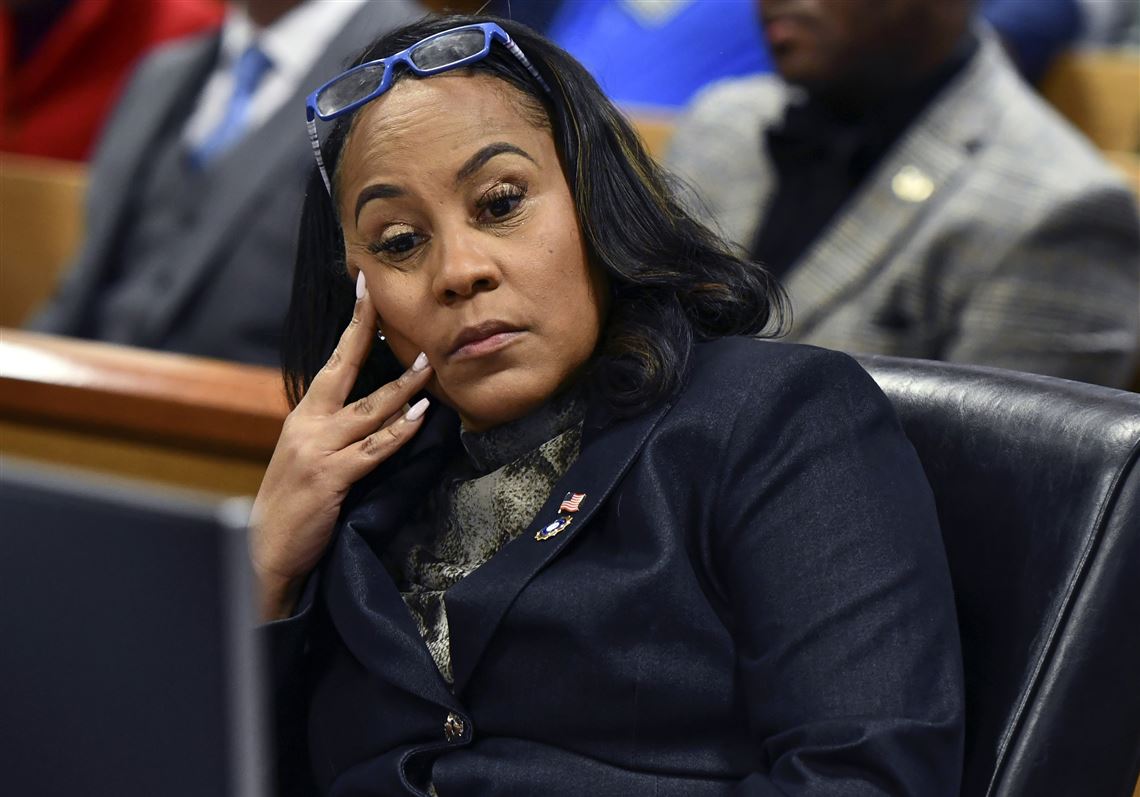The legal saga surrounding the election-interference charges against Donald Trump in Georgia has become increasingly convoluted, with a cloud of uncertainty hanging over Fulton County District Attorney Fani Willis’s case.
Despite potential challenges, legal experts assert that Willis’s prosecution efforts have been significantly compromised by an ongoing ethics scandal.
Willis, who initiated the racketeering case against Trump and 18 others, faces scrutiny due to her alleged romantic relationship with Nathan Wade, her top deputy on the case. This scandal has not only hindered momentum in securing early plea deals but has also cast doubt on the prosecution’s ability to obtain guilty pleas from the remaining defendants.
The recent hearing presided over by Fulton County Superior Court Judge Scott McAfee revolved around a motion to disqualify Willis. While McAfee has yet to deliver a ruling, the proceedings underscored the contentious nature of the case, with defense lawyers and Willis’s prosecution team engaging in heated exchanges.
The central question revolves around whether Willis’s relationship with Wade constitutes a conflict of interest that warrants her disqualification. Although some legal experts believe that Trump and his co-defendants may not succeed in removing Willis, the scandal has sparked outrage among Republican lawmakers in Georgia. They have intensified efforts to establish a commission to scrutinize prosecutors’ conduct, irrespective of the case’s outcome.
The implications of Willis’s potential disqualification are multifaceted. If she remains on the case, finding an impartial jury may prove challenging, further complicating the prosecution’s efforts. Moreover, the protracted legal proceedings have already consumed significant court resources, making it increasingly unlikely for a resolution before Election Day.

Should Willis be disqualified, it would trigger a cascade of legal uncertainties. Under Georgia law, her entire office would be barred from further prosecuting the case, necessitating the involvement of another district attorney. This transition would inevitably prolong the legal process, exacerbating an already intricate situation.
Before the emergence of the ethics scandal, Willis’s prosecution seemed to be making strides, particularly in securing cooperation from lower-level individuals implicated in the alleged conspiracy. However, the recent developments have cast a shadow over these efforts, raising questions about the case’s future trajectory.
The scrutiny surrounding Willis’s conduct extends beyond the courtroom. Last year, Georgia legislators passed a bill aimed at establishing a commission to oversee prosecutors’ actions. Although this initiative faced obstacles, renewed efforts to implement such oversight mechanisms underscore the political ramifications of the case.
Amidst the legal wrangling, Willis’s credibility has come under scrutiny. Questions regarding the timeline and nature of her relationship with Wade have raised doubts about their veracity. Additionally, inconsistencies in witness testimony further complicate matters, highlighting the complexity of establishing concrete evidence in the case.
As McAfee deliberates on the disqualification motion, the legal community awaits his decision with bated breath. The outcome will not only shape the future of the case but also have broader implications for prosecutorial accountability and the integrity of the legal system in Georgia. Regardless of the verdict, the controversy surrounding Willis’s conduct serves as a stark reminder of the challenges inherent in prosecuting high-profile cases amidst political scrutiny and public scrutiny.

